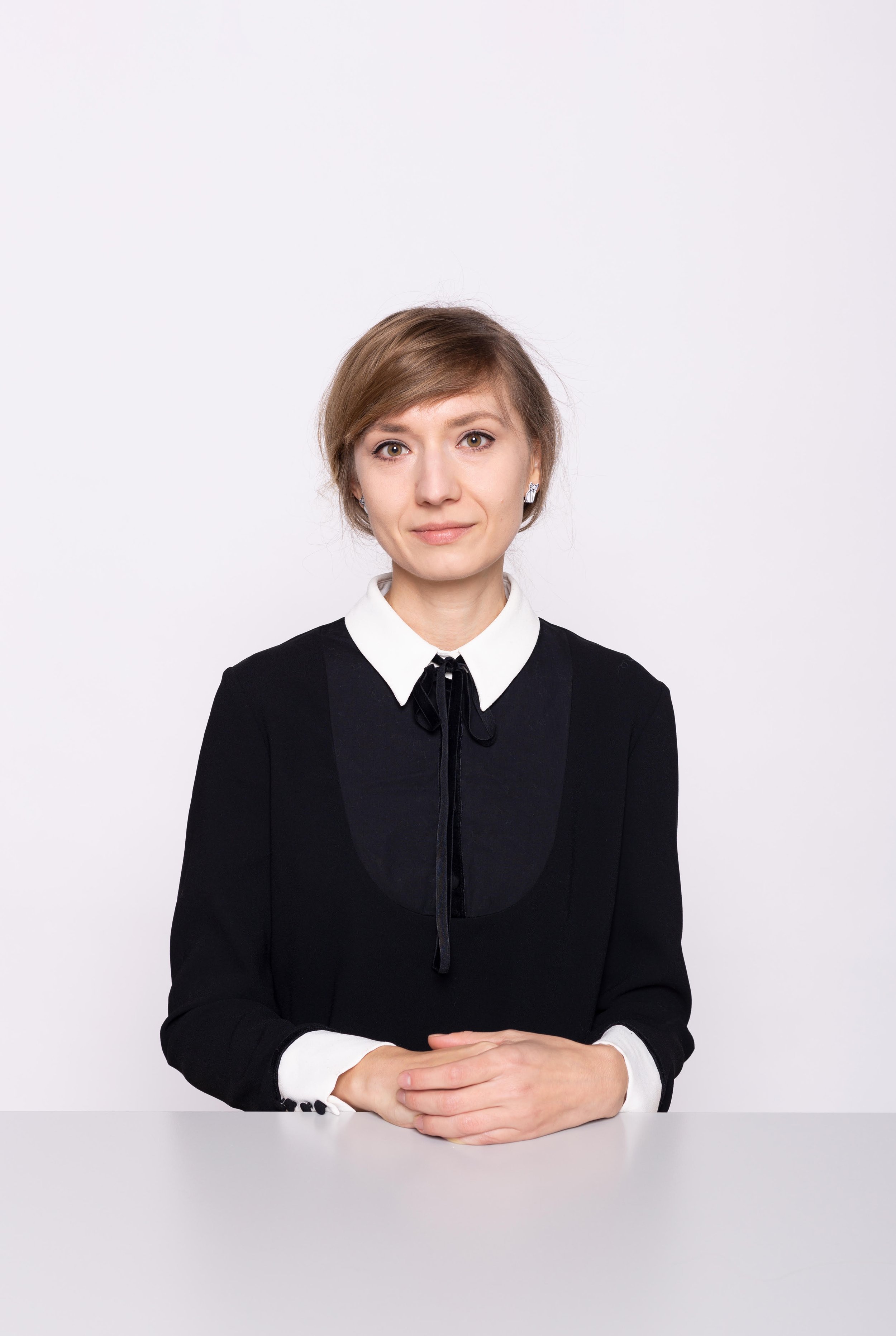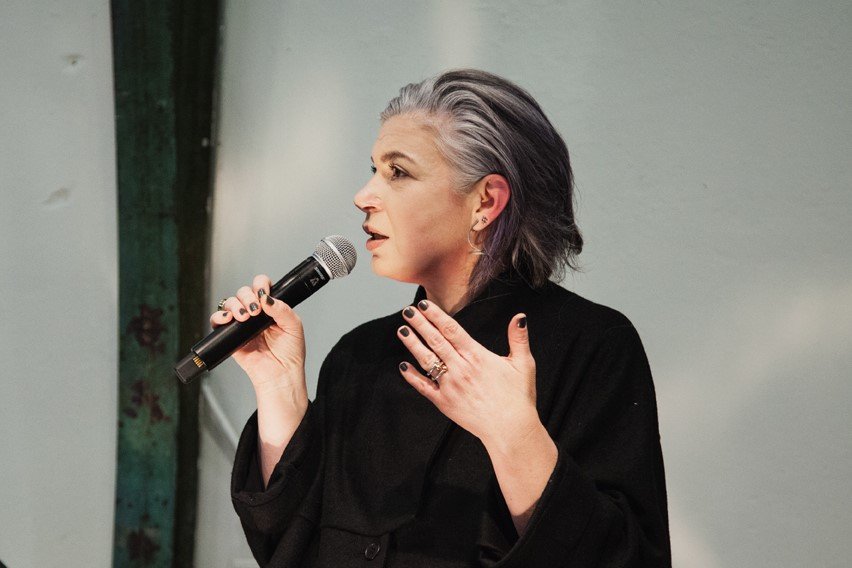19 April 2023
17:00 - 19:00 hrs CEST
Language: English
The webinar is free and open to non-members.
Please register by sending an email to aicainternational.webinar@gmail.com by 18th April.
The webinar Also Postcolonial is the second in a series of webinars prepared as research events to the forthcoming publication Anthology of critical texts from V4 countries published after 1989, which is being prepared jointly by the AICA of Poland, Slovakia, Hungary and Czech Republic, co-financed by the Visegrad Fund, and which should be published in 2023.
Thank you: Malgorzata Kazmierczak, Vice President, AICA Poland; Kata Balázs, President, AICA Hungary; Karolina Bayley Hughes, AICA International; and webinar participants: Svitlana Biedarieva, Mária Hlavajová, Rado Ištok, Karolina Kolenda, Katalin Timár. Preparation and coordination of the webinar: Lýdia Pribišová, President of AICA Slovakia.
As the horrors of Russia’s war in Ukraine continue - and the attacked people and lands endure unspeakable suffering - there is a growing parallel commitment from artists, thinkers, and activists to create an in-depth understanding of the causes and genealogies of the conflict. Much of these efforts center on the “postcolonial paradigm” as a way to articulate the historical relations between Ukraine and the Russian empire and Soviet Union, respectively. Yet the postcolonial paradigm extends beyond the Russo-Ukrainian case, and encompasses a much larger set of relations within central and eastern Europe. If arguments about Russia as coloniser justly abound, there are studies that recognise other - internal, neighbour, and transversal- colonialisms across this part of the continent in the twentieth and early twenty-first century.
Yet, other voices question the validity of the postcolonial as the principal designator, especially in relation the so-called “post-communist condition.” Arguing that the post-Soviet can be neither excluded from nor equalised with the postcolonial discourses, they call for a nuanced analysis of a wide array of ideological, social, ecological, and economic dimensions that are “also postcolonial” yet extend beyond the remit of contemporary postcolonial theory.
Titled Also Postcolonial, this AICA roundtable is convened in order to inquire into the conceptual underpinnings of such a “post-communist postcolonial,” with a focus on: the specificities of the core-periphery relations; the notion of othering as “not-real-others”; and the common front in relation to the so-called west (despite the colonialisms within). Expanding postcolonial thought along these lines, the contributions discuss ways to rethink the extant myths of modernity and modernization in central and eastern Europe in order to “retroperspectively” open itineraries for thinking forward and out of the present—one filled with so many entwined crises, including the horrors of war in our own courtyard.
Maria Hlavajova
Speakers
Rado Ištok
Rado Ištok is a curator, art writer, and editor. He is the curator of the Collection of Modern and Contemporary Art at the National Gallery in Prague, Czech Republic, and a PhD candidate at the Academy of Fine Arts Vienna, Austria. Together with Renan Laru-an, Piotr Sikora and Tereza Stejskalová, he was one of the curators of the 2nd edition of the biennaleMatter of Art (2022) in Prague, Czech Republic. Previously, he was the curator of the European Cooperation Project4Cs: From Conflict to Conviviality through Creativity and Culture at the Nida Art Colony of the Vilnius Academy of Arts, Lithuania (2018–2020). Recent exhibitions include Eva Koťátková: My Body Is Not an Island, National Gallery Prague, Czech Republic (2022–2023, co-curated with Sandra Patron); All That Is Solid Melts into Water, Uppsala Art Museum, Uppsala, Sweden (2022); Ala Younis: High Dam: Modern Pyramid, VIPER Gallery, Prague, Czech Republic (2020); The Spectral Forest, Nida Art Colony, Lithuania (2020); Jacqueline Hoàng Nguyễn: Black Atlas, Július Koller Society in Bratislava, Slovakia (2019). Editorial work includes the biennale reader Soft Spots (Spector Books 2022), exhibition catalogue The Spectral Forest (Kirvarpa 2021), e-publication Dwelling on the Threshold (Nida Art Colony 2020). Together with Jacqueline Hoàng Nguyễn he co-edited the book Crating the World (Athénée Press 2019), and with L’Internationale he co-edited the e-publication Decolonising Archives (L’Internationale Online 2016). He contributes to Artforum International, Flash Art, Art+Antiques, Artalk as well as academic publications, most recently to Cultures of Silence: The Power of Untold Narratives (Routledge 2023) edited by Luísa Santos.
Karolina Kolenda
Karolina Kolenda, art historian and literary scholar, educated at the Jagiellonian University in Krakow, Poland. Assistant professor at the Institute of Art and Design, Pedagogical University of Krakow. She is an author of Na (nie) swojej ziemi. Tożsamość kulturowa i sztuka w Wielkiej Brytanii po 1945 (2016) [In a land that is (not) one’s own. Cultural identity and art in Great Britain after 1945] and Englishness Revisited: Contemporary Literary Representations of English National and Cultural Identity (2019), as well as co-editor of An Inverted World: Reconfigurations of Spaces of Memory in Krakow’s Kazimierz (2021). Among her current research interests are environmental art history, landscape studies, and cultural geography.
Katalin Timár
Katalin Timár Phd works as a curator in the Ludwig Museum – Museum of Contemporary Art in Budapest where her more recent projects include Ludwig Goes Pop + The East Side Story (2015), Economize! (2017), Király Tamás: Out of the Box (2019), and most lately Extended Present and Előhívás/Emplotment (both with the museum’s curatorial collective, 2022). She was the curator of the Hungarian Pavilion at the 52nd Venice Biennale in 2007, which received the Golden Lion Award for Best National Pavilion (with the participation of Andreas Fogarasi). She holds a PhD in Linguistics and teaches art history and theory at Pázmány Péter Catholic University. Her theoretical interest focuses on the fields of art and economy, the crisis of institutions, and participation.
Svitlana Biedarieva
Svitlana Biedarieva is an art historian, curator, and artist. Her research focus is contemporary Ukrainian art, decoloniality, and Russia’s ongoing war against Ukraine. She holds a PhD in History of Art from the Courtauld Institute of Art. She is the editor of Contemporary Ukrainian and Baltic Art: Political and Social Perspectives, 1991–2021 (2021) and the co-editor of At the Front Line. Ukrainian Art, 2013–2019 (2020). She has published on Ukrainian art in October, ArtMargins Online, post at MoMA, Burlington Contemporary, Financial Times, and The Art Newspaper, among others. She is the current George F. Kennan Fellow at the Kennan Institute, Wilson Centre, the 2022/2023 Non-Resident Visiting Fellow at the IERES at the George Washington University, and the 2022/2025 CEC ArtsLink International Fellow (hosted by the University of Kansas). Currently, she works on a monograph Ambicoloniality and War: The Ukrainian-Russian Case (Palgrave Macmillan, 2023, forthcoming). Website: https://svitlanabiedarieva.com/.
Moderator
Maria Hlavajova
Maria Hlavajova is an organizer, researcher, educator, curator, and founding general and artistic director of BAK, basis voor actuele kunst, Utrecht (since 2000). Between 2008 and 2016, she was research and artistic director of the collaborative research, exhibition, and education project FORMER WEST, which culminated in the publication Former West: Art and the Contemporary After 1989 (which she co-edited with Simon Sheikh, 2016). Hlavajova has instigated and (co-)organized numerous projects at BAK and beyond, including the series Propositions for Non-Fascist Living (2017–ongoing), Future Vocabularies (2014–2017), New World Academy (with Jonas Staal, 2013–2016), among many other international research, education, exhibition, and publication projects. Her curatorial work includes Call the Witness, Roma Pavilion, 54th Venice Biennale, Venice, 2011; Citizens and Subjects, Dutch Pavilion, 52nd Venice Biennale, Venice, 2007; and Borderline Syndrome: Energies of Defense, Manifesta 3, Ljubljana, 2000. Publications she has (co-)edited include: Fragments of Repair (with Kader Attia and Wietske Maas, forthcoming 2023); Toward the Not-Yet: Art as Public Practice (with Jeanne van Heeswijk and Rachael Rakes, 2021); Deserting from the Culture Wars (with Sven Lütticken, 2020); Propositions for Non-Fascist Living: Tentative and Urgent (with Wietske Maas, 2019); Posthuman Glossary (with Rosi Braidotti, 2018); and Marion von Osten: Once We Were Artists (with Tom Holert, 2017), among others. She is a lecturer at HKU University of the Arts Utrecht, Utrecht and Academy of Fine Arts and Design, Bratislava. In addition, Hlavajova is co-founder (with Kathrin Rhomberg) of the tranzit network. Hlavajova is a member of the supervisory board of the Academy of Visual Arts, Prague and of the advisory boards of Bergen Assembly, Bergen and IMAGINART, Imagining Institutions Otherwise: Art, Politics, and State Transformation, University of Amsterdam, Amsterdam. In the recent past, Hlavajova served on the supervisory boards of European Cultural Foundation, Amsterdam and Stedelijk Museum, Amsterdam. She lives and works in Amsterdam and Utrecht.





